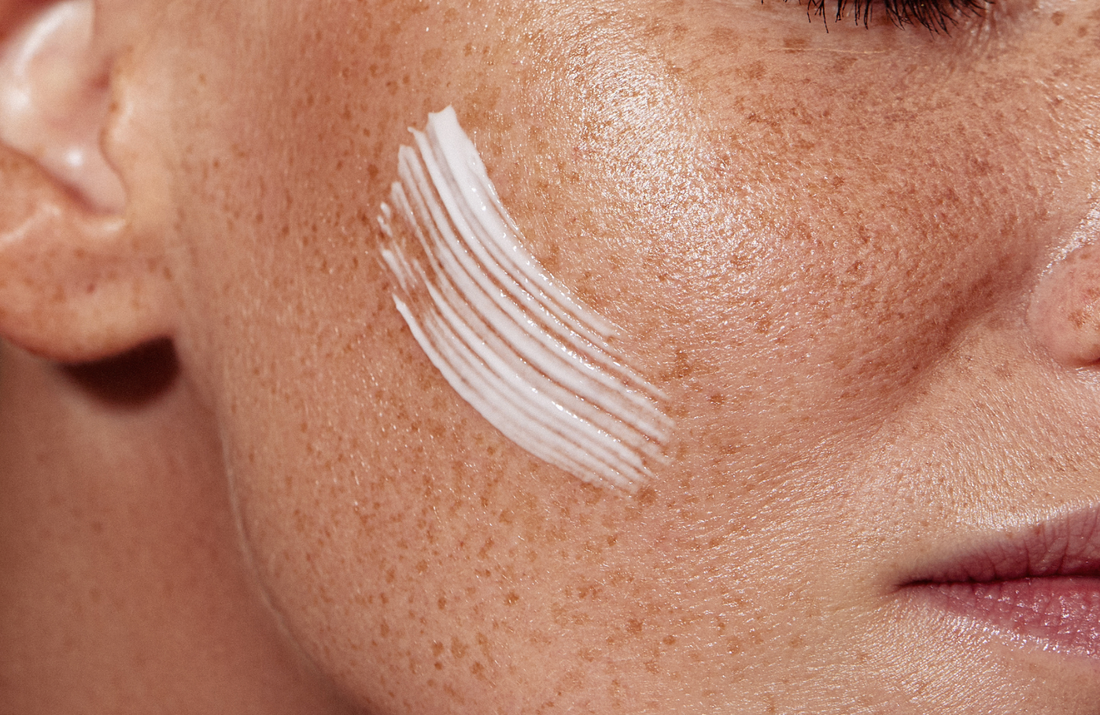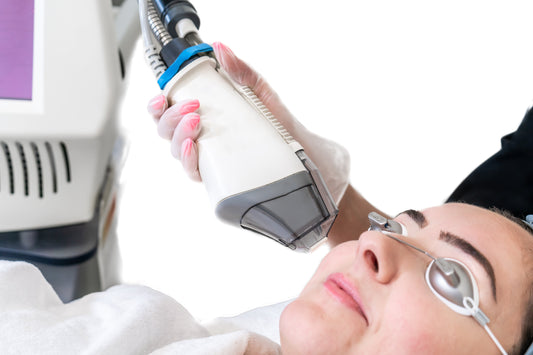Your skin barrier is critical to your skin health. It’s made of lipids or water-resistant oils. As the name suggests, it protects your skin from both external and internal damage. When it becomes damaged, it exposes you to aging skin and disease.1 An important part of your skin care is understanding and caring for your skin barrier. Here’s five things you should know.
1. Your Skin Barrier Protects Skin From External Aggressors
Your skin barrier is your first line of defense against environmental attacks from sun damage, pollution, infection, or bacteria. These not only age your skin, but leave you vulnerable to acne and other skin diseases. The barrier keeps dirt and oil from clogging your pores, and improves your immune response to wounds and inflammation. It also helps keep your skin smooth.
2. Healthy Skin Barrier Helps Retain Moisture
In addition to protecting you from external toxins, your skin barrier helps pull moisture into your skin for deep hydration. The lipids in the skin barrier are made up of ceramides, cholesterol, and fatty acids. They settle in between the skin cells to hold moisture in.4 So not only do you keep more moisture in your skin, you also don’t lose as much to evaporation or sweat. Help keep your face hydrated with moisturizers that contain hyaluronic acid or glycerin.
3. Over-exfoliation or Harsh Skincare Products Cause A Damaged Skin Barrier
While your skin barrier has a tough job, it’s easy to damage. Over-exfoliation or using irritating chemicals is one of the most common ways people damage their skin barriers. Often these products strip the oils from your skin. Once damaged, your skin barrier can take weeks to recover on its own. During that time, you become vulnerable to acne, infection, and bacteria that can leave you with scars or a chronic skin condition like rosacea or psoriasis.2
When exfoliating, use a gentle alpha hydroxy acid or azelaic acid exfoliant that won’t strip your skin barrier. Azelaic Acid 14% Cream pairs a medical grade concentration of azelaic acid with a formulation gentle enough for sensitive skin. You’ll get a smoother, more even skin tone without harming your skin’s natural barrier.
4. Pay Attention to pH
Part of your skin barrier is a thin acidic film on the outermost layer of skin called the acid mantle. The acid mantle is made up of sweat, water, and your natural oils. It maintains the pH level in your skin, with the help of ceramides and healthy mitochondria.2 A balanced pH level is essential for keeping your bacterial skin flora healthy. The flora kills invading bacteria, infections, and fungi while helping your skin heal more quickly.5
When your pH level increases, your skin barrier is less effective. The production and quality of lipids decreases, inflammation increases, and wound repair slows. This can lead to outbreaks of acne, rosacea, psoriasis, and other inflammatory skin conditions. Use a cleanser with a pH of 4.0-5.0.5
5. Signs of a Damaged Skin Barrier
Watch for signs that your skin barrier might be damaged,6 including:
-
Dry or scaly skin
-
Itchiness, irritation, or increased sensitivity
-
Tightness or inflammation
-
Redness or rough patches
-
Acne breakouts or infections
Don’t wait to help your skin barrier recover from damage. If the damage is caused by an underlying skin condition or a disease like diabetes, work with your doctor or dermatologist to treat the root cause.6
Otherwise, you can immediately kickstart your skin barrier repair by using the right cleanser and a good moisturizer (see suggestions below). You can also add a product containing niacinamide. Niacinamide Lotion 10% contains antioxidant and anti-inflammatory properties that fight free radicals and enhance repair to sun damaged skin while boosting ceramides that build a healthy lipid barrier, preventing moisture loss.
How To Protect Your Skin Barrier
When it comes to your skin barrier, a good offense is the best defense. Often, the first step is to simplify your routine by focusing on the foundations of good skincare: Use gentle cleanser, moisturize, and protect against sun damage. Below are some tips that will help you protect your skin barrier while improving your skin’s overall health.
Choose a Gentle Cleanser
Many soaps strip your skin barrier of the oils necessary to keep it healthy. Select a gentle, fragrance-free, soap-free cleanser with a pH level of 4.0-5.0.7 Read the ingredients to make sure there are no unnecessary chemicals. Rinse with warm water. Hot water can also damage your skin barrier.8
Use Products With Skin Barrier-Repairing Ingredients
Read product labels for ingredients with the building blocks of the skin barrier: ceramides, fatty acids, and cholesterol. Also look for hydrating ingredients like hyaluronic acid or glycerin that help the skin barrier retain moisture. Vitamin C and E are antioxidants that fight free radicals and help repair skin. Niacinamide has ceramides, moisturizes, and helps DNA repair skin all in one.
Hyaluronic Acid Lotion is a perfect solution for protecting or repairing your skin barrier. A powerful humectant, it draws in moisture for the deepest hydration and locks it into your skin. It helps your skin look smoother and absorb other ingredients like niacinamide more easily.
Limit Exfoliation
Everyone loves the smooth brightness that comes from exfoliating, but chasing that look is one of the biggest causes of skin barrier damage. Limit your exfoliation once or twice a week and avoid harsh chemicals or scrubs. Instead choose a gentle exfoliant containing azelaic acid or alpha hydroxy acids that are well tested and tolerated for sensitive skin.
Hydrate and Moisturize Consistently
Use a moisturizer every time you wash your face and choose other products with hydrating ingredients. Look for ingredients that layer well and complement each other.
For example, you can sandwich Foundation Skincare’s Hyaluronic Acid Lotion with Vitamin C Lotion 20%. Vitamin C Lotion 20% is not only a great everyday moisturizer that nourishes your skin barrier, but it contains anti-inflammatory properties that reduce redness and swelling. The addition of vitamin E means you get an antioxidant powerhouse in every application.
Use Sunscreen Every Day
The most important action you can take for your skin’s health and to strengthen your skin barrier is to use a SPF 30+ sunscreen every day. Sun exposure causes more damage to your skin than anything else.
Your skin barrier is the invisible soldier guarding your skin’s health. You can make the job easier by using ingredients and adopting skincare habits that strengthen and protect your skin barrier.
Resources:
-
https://pmc.ncbi.nlm.nih.gov/articles/PMC5967208/
-
https://pmc.ncbi.nlm.nih.gov/articles/PMC10706187/
-
https://pmc.ncbi.nlm.nih.gov/articles/PMC5608132/
-
https://www.sciencedirect.com/science/article/pii/S0163782723000425
-
https://jcadonline.com/fundamentals-of-skin-barrier-physiology/
-
https://www.healthline.com/health/skin-barrier
-
https://pubmed.ncbi.nlm.nih.gov/30130782/
-
https://health.clevelandclinic.org/skin-barrier





